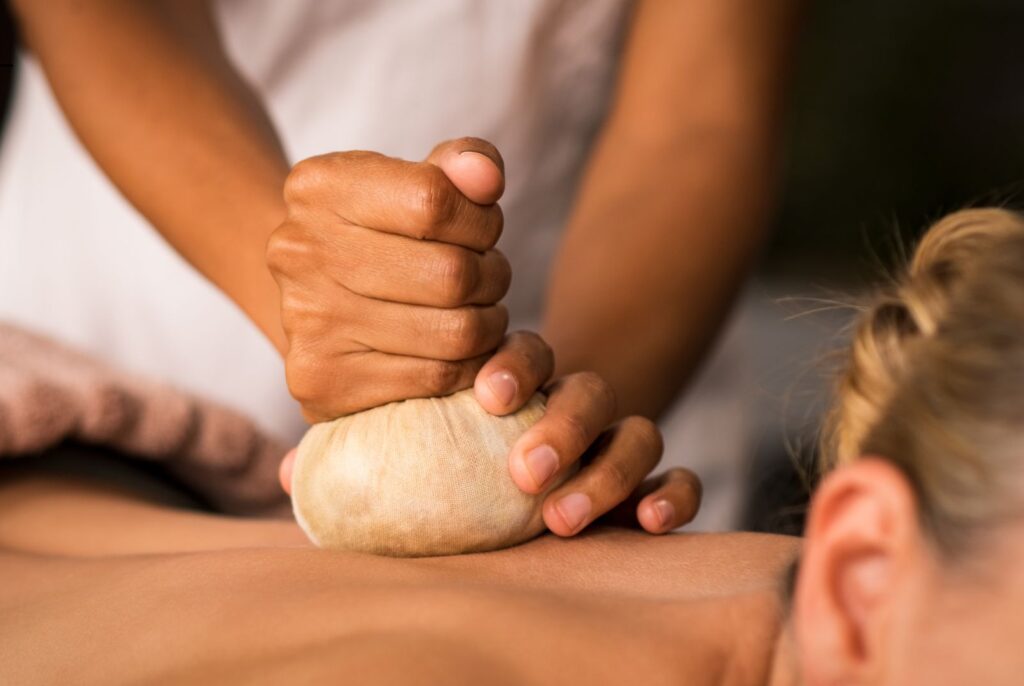Introduction
Basti, also known as enema therapy, is an ancient practice in Ayurvedic medicine that involves the administration of herbal oils or decoctions into the colon for the purpose of cleansing and detoxification.
This therapeutic procedure has been used for thousands of years to promote optimal health and well-being by addressing imbalances in the body, particularly those related to the colon and digestive system.
Basti originated in India over 5,000 years ago and is considered one of the five main Panchakarma treatments in Ayurveda. Panchakarma is a comprehensive system of detoxification and rejuvenation that aims to restore balance to the body, mind, and spirit. Basti is a crucial component of this system, as it focuses on cleansing the colon, which plays a vital role in overall health.
The colon, also known as the large intestine, is responsible for the final stages of digestion and the elimination of waste from the body. When the colon is not functioning optimally, it can lead to a variety of health issues, such as constipation, diarrhea, bloating, and even more severe conditions like Irritable Bowel Syndrome (IBS) and Inflammatory Bowel Disease (IBD).
By targeting the colon through Basti therapy, Ayurvedic practitioners aim to promote regular bowel movements, eliminate toxins, and restore balance to the digestive system, thereby supporting overall health and well-being.
Understanding the Colon and Its Function
The colon is a crucial component of the digestive system, playing a vital role in the body’s overall health and well-being. Located at the end of the digestive tract, the colon is responsible for absorbing water and electrolytes from the remaining indigestible food matter, solidifying the waste, and eliminating it from the body through bowel movements.
Anatomy of the colon
The colon is divided into four main sections:
- Ascending colon: This section moves up the right side of the abdomen.
- Transverse colon: This section runs horizontally across the upper abdomen.
- Descending colon: This section moves down the left side of the abdomen.
- Sigmoid colon: This final section is shaped like an “S” and connects to the rectum.
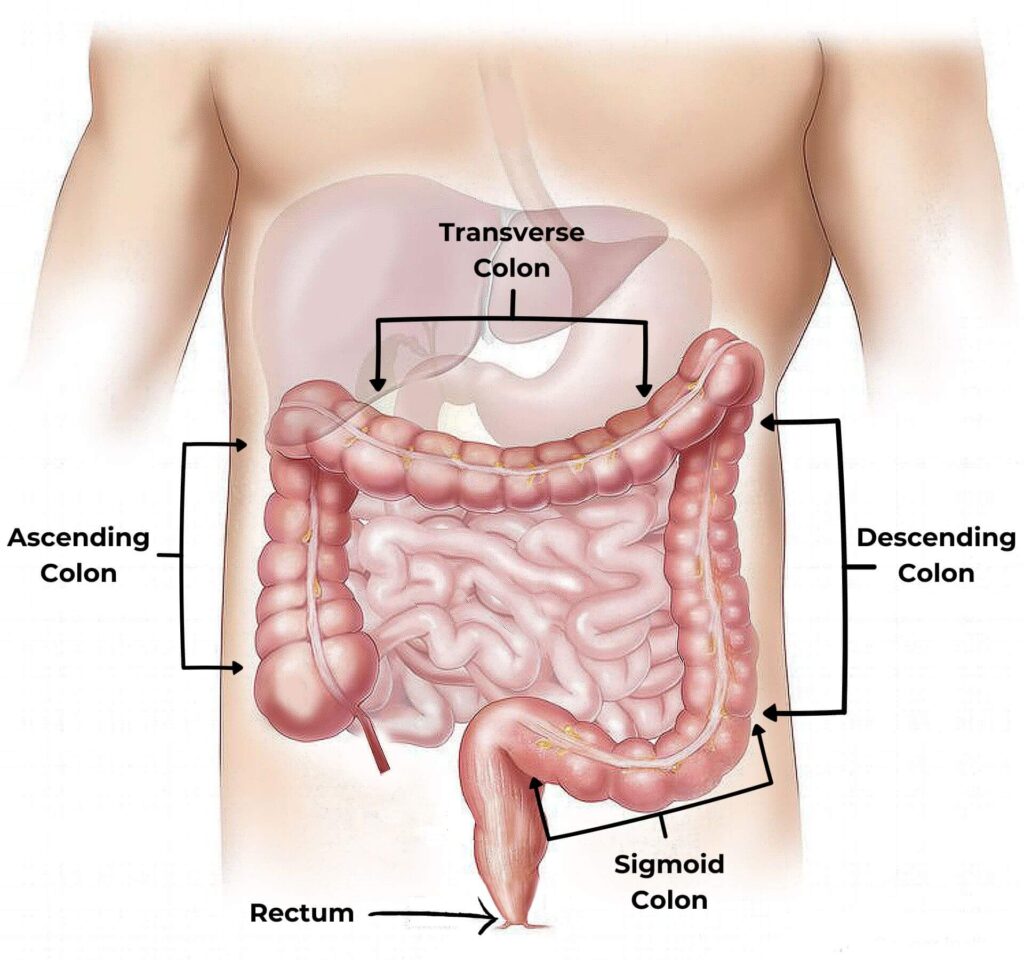
Role of the colon in digestion and elimination
The colon’s primary functions include:
- Absorbing water and electrolytes: As the indigestible food matter moves through the colon, water and electrolytes are absorbed back into the body, helping to maintain proper hydration and electrolyte balance.
- Solidifying waste: The remaining waste material is solidified into stool as it moves through the colon.
- Eliminating waste: The solidified stool is stored in the rectum until it is eliminated from the body through a bowel movement.
Common colon-related health issues
When the colon is not functioning optimally, it can lead to various health issues, such as:
- Constipation: Difficulty passing stool or infrequent bowel movements.
- Diarrhea: Loose, watery stools and frequent bowel movements.
- Irritable Bowel Syndrome (IBS): A chronic condition characterized by abdominal pain, bloating, and changes in bowel habits.
- Inflammatory Bowel Disease (IBD): A group of disorders, including Crohn’s disease and ulcerative colitis, that cause chronic inflammation in the digestive tract.
By understanding the anatomy and function of the colon, as well as common colon-related health issues, we can better appreciate the importance of maintaining optimal colon health through practices like basti.
Ayurvedic Perspective on Colon Health
Ayurveda, the ancient Indian system of medicine, places great emphasis on the health of the digestive system, particularly the colon. According to Ayurvedic principles, optimal colon health is essential for maintaining overall well-being and preventing disease.
The concept of Agni (digestive fire) in Ayurveda
In Ayurveda, Agni refers to the digestive fire that is responsible for breaking down food, absorbing nutrients, and eliminating waste. When Agni is functioning properly, the body is able to digest food efficiently, absorb essential nutrients, and eliminate toxins and waste products effectively. However, when Agni is weakened or imbalanced, it can lead to the accumulation of toxins (Ama) in the body, which can contribute to various health issues, including those related to the colon.
Importance of balanced doshas for optimal colon function
Ayurveda recognizes three main doshas, or constitutional types: Vata, Pitta, and Kapha. Each dosha is associated with specific qualities and functions in the body, and an imbalance in any of these doshas can lead to health issues.
In relation to colon health, the Vata dosha is particularly important, as it governs the movement of waste through the digestive tract and the elimination process.
Role of Apana Vayu in elimination
Apana Vayu is one of the five sub-types of Vata dosha, and it is responsible for the downward movement of energy in the body, including the elimination of waste through the colon.
When Apana Vayu is functioning properly, waste is eliminated efficiently, and the colon remains healthy. However, when Apana Vayu is imbalanced, it can lead to issues such as constipation, gas, and bloating.
Symptoms of imbalanced Apana Vayu and colon health
Some common symptoms of imbalanced Apana Vayu and poor colon health include:
- Constipation or difficulty passing stool
- Irregular bowel movements
- Gas and bloating
- Abdominal pain or discomfort
- Feeling of incomplete evacuation after bowel movements
By understanding the Ayurvedic perspective on colon health, including the importance of Agni, balanced doshas, and Apana Vayu, we can better appreciate the role of Ayurvedic practices, such as Basti, in promoting optimal digestive health and overall well-being.
What is Basti Therapy?
Basti therapy is a unique Ayurvedic treatment that involves the administration of herbal oils or decoctions into the colon through the rectum. The term “Basti” is derived from the Sanskrit word “Basti,” which means “bladder” or “container,” referring to the enema bag or container used to administer the treatment.
Definition and explanation of Basti treatment
Basti treatment is a type of enema therapy that aims to cleanse the colon, eliminate toxins, and restore balance to the digestive system. The herbal oils or decoctions used in Basti are carefully selected based on the individual’s constitution (dosha) and specific health needs. These substances are believed to nourish and lubricate the colon, promote the elimination of waste, and support the health of the digestive tract.
Types of Basti
There are two main types of Basti:
- Anuvasana Basti (oil-based enema): This type of Basti involves the administration of herbal oils into the colon. The oils are believed to lubricate and nourish the colon, promoting regular bowel movements and reducing inflammation.
- Niruha Basti (decoction-based enema): This type of Basti involves the administration of herbal decoctions (water-based extracts) into the colon. The decoctions are believed to cleanse the colon, eliminate toxins, and promote healing.
Indications for Basti therapy
Basti therapy may be recommended for a variety of health conditions, including:
- Constipation and other digestive disorders
- Irritable Bowel Syndrome (IBS)
- Inflammatory Bowel Disease (IBD)
- Arthritis and joint pain
- Neurological disorders, such as multiple sclerosis and Parkinson’s disease
- Gynecological disorders, such as endometriosis and polycystic ovary syndrome (PCOS)
Contraindications and precautions
While Basti therapy is generally considered safe when performed by a trained Ayurvedic practitioner, there are certain contraindications and precautions to keep in mind:
- Pregnancy
- Menstruation
- Active bleeding disorders
- Severe anemia
- Acute fever or infection
- Recent abdominal surgery
It is essential to consult with a qualified Ayurvedic practitioner before undergoing Basti therapy to ensure that it is appropriate for your individual health needs and to minimize the risk of any adverse effects.
Benefits of Basti for Colon Cleansing
Basti therapy offers numerous benefits for colon health and overall well-being. By cleansing the colon and promoting regular bowel movements, Basti can help to eliminate toxins, reduce inflammation, and support the body’s natural healing processes.
- Eliminates toxins and waste from the colon:
One of the primary benefits of Basti therapy is its ability to eliminate toxins and waste from the colon. Over time, the accumulation of toxins in the body can contribute to a variety of health issues, including digestive disorders, skin problems, and chronic fatigue. By cleansing the colon, Basti helps to remove these toxins and promote overall health and vitality. - Balances Vata dosha:
Basti therapy is particularly beneficial for individuals with a predominance of Vata dosha, as it helps to balance and regulate the movement of Vata in the body. When Vata is in balance, the digestive system functions more efficiently, promoting regular bowel movements and reducing symptoms such as constipation, gas, and bloating. - Improves digestion and absorption of nutrients:
By promoting regular bowel movements and reducing inflammation in the digestive tract, Basti therapy can help to improve digestion and the absorption of nutrients from food. This can lead to increased energy levels, better skin health, and overall improved well-being. - Relieves constipation and promotes regular bowel movements:
Constipation is a common digestive issue that can cause discomfort, bloating, and other unpleasant symptoms. Basti therapy is an effective way to relieve constipation and promote regular bowel movements by lubricating the colon and stimulating peristalsis (the natural contractions of the digestive tract that move waste through the body). - Supports healthy gut flora:
The colon is home to a diverse community of beneficial bacteria known as gut flora. These bacteria play a crucial role in digestive health, immune function, and overall well-being. Basti therapy can help to support the growth and balance of healthy gut flora by removing harmful toxins and creating a more favorable environment for beneficial bacteria to thrive. - Enhances overall immune function:
The digestive system and the immune system are closely connected, with a significant portion of the body’s immune cells residing in the gut. By promoting colon health and supporting the growth of beneficial gut bacteria, Basti therapy can help to enhance overall immune function and reduce the risk of various diseases and infections.
Preparing for Basti Treatment
Before undergoing Basti treatment, it is essential to properly prepare the body and mind to ensure the best possible results and minimize the risk of any adverse effects.
Consultation with an Ayurvedic practitioner
The first step in preparing for Basti treatment is to consult with a qualified Ayurvedic practitioner. During the consultation, the practitioner will assess your individual constitution (dosha), health history, and current symptoms to determine whether Basti therapy is appropriate for you and, if so, which type of Basti would be most beneficial.
Materials and equipment
To perform Basti therapy, the following materials and equipment are typically used:
- Enema bag or container
- Catheter or enema nozzle
- Herbal oils or decoctions (prepared by the Ayurvedic practitioner)
- Lubricant (such as coconut oil or ghee)
- Towels or absorbent pads
- Access to a toilet or bathroom
Dietary and lifestyle recommendations before treatment
In preparation for Basti treatment, the Ayurvedic practitioner may recommend certain dietary and lifestyle changes to optimize the body’s response to the therapy. These recommendations may include:
- Eating a light, easily digestible diet for several days before the treatment
- Avoiding heavy, oily, or fried foods
- Staying hydrated by drinking plenty of warm water or herbal teas
- Engaging in gentle exercise, such as yoga or walking, to stimulate digestion and promote relaxation
- Practicing stress-reduction techniques, such as meditation or deep breathing exercises
By following these recommendations and properly preparing for Basti treatment, you can help to ensure a more comfortable and effective experience, while also supporting your body’s natural healing processes.
The Basti Procedure
Basti involves the administration of herbal oils or decoctions into the colon through the rectum. The treatment is typically performed by a trained Ayurvedic practitioner in a clinical setting, ensuring proper technique and safety.
Step-by-step guide to the Basti procedure
- The patient lies on their left side with their right knee bent towards the chest.
- The Ayurvedic practitioner lubricates the enema nozzle or catheter with a small amount of oil or ghee.
- The practitioner gently inserts the nozzle or catheter into the rectum, taking care to avoid any discomfort or pain.
- The herbal oil or decoction is slowly administered into the colon, allowing the patient to breathe deeply and relax.
- Once the desired amount of liquid has been administered, the nozzle or catheter is gently removed.
- The patient remains lying on their left side for several minutes, allowing the liquid to be retained in the colon.
- After the retention period, the patient is instructed to visit the bathroom to eliminate the liquid and any waste material.
Duration and frequency of treatment
The duration and frequency of Basti treatment can vary depending on the individual’s specific health needs and the recommendations of the Ayurvedic practitioner. In general, a course of Basti therapy may involve daily treatments for a period of 5 to 21 days, with the duration of each treatment lasting approximately 30 to 45 minutes.
Possible side effects and how to manage them
While Basti therapy is generally considered safe when performed by a trained practitioner, some individuals may experience mild side effects, such as:
- Abdominal discomfort or cramping
- Bloating or gas
- Nausea or dizziness
- Mild diarrhea
These side effects are usually temporary and can be managed by:
- Resting and avoiding strenuous activity after the treatment
- Drinking plenty of warm water or herbal tea to support hydration and elimination
- Eating a light, easily digestible diet for several hours after the treatment
- Applying a warm compress or heating pad to the abdomen to relieve discomfort
If any severe or persistent side effects occur, it is important to contact the Ayurvedic practitioner or a healthcare provider immediately.
Post-Basti Care and Lifestyle Changes
To maximize the benefits of Basti therapy and support ongoing colon health, it is important to follow proper post-treatment care and make certain lifestyle changes.
Dietary guidelines after Basti treatment
After undergoing Basti therapy, it is recommended to follow a light, easily digestible diet for several days. This may include:
- Warm, cooked foods such as soups, stews, and kitchari (a traditional Ayurvedic dish made with rice, lentils, and vegetables)
- Steamed or lightly sautéed vegetables
- Fruits that are easy to digest, such as cooked apples or pears
- Avoiding raw, cold, or heavy foods that may be difficult to digest
Importance of hydration
Staying well-hydrated is crucial for supporting the body’s natural elimination processes and promoting colon health. After Basti therapy, it is recommended to drink plenty of warm water, herbal teas, or other hydrating fluids throughout the day.

Gentle exercise and yoga poses to support colon health
Engaging in gentle exercise and certain yoga poses can help to stimulate digestion, promote regular bowel movements, and support overall colon health. Some beneficial practices may include:
1. Walking or gentle jogging
2. Twisting yoga poses
Such as Ardha Matsyendrasana (Seated Spinal Twist) or Parivrtta Trikonasana (Revolved Triangle Pose)


3. Forward bending poses
Such as Uttanasana (Standing Forward Bend) or Paschimottanasana (Seated Forward Bend)
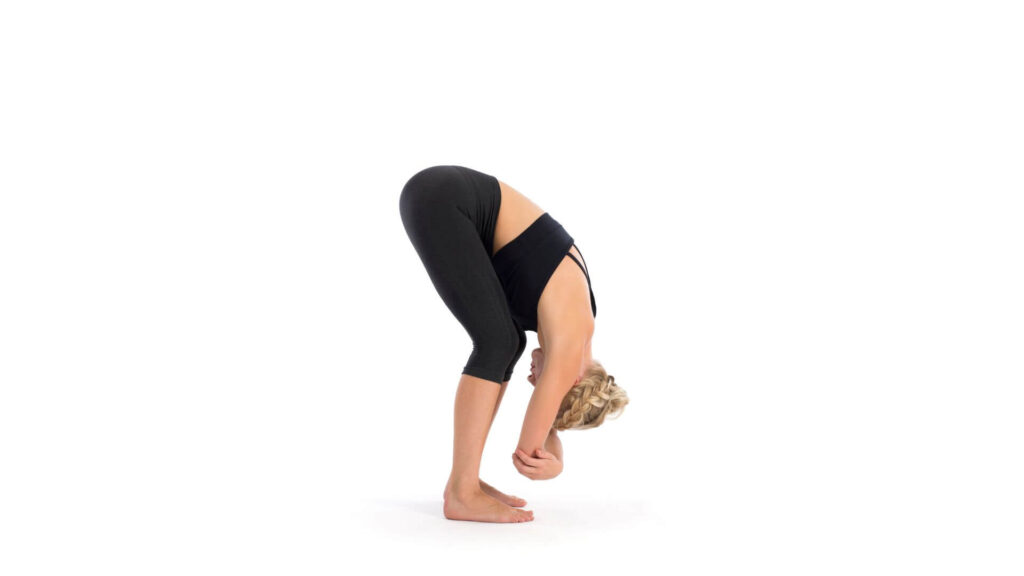

4. Abdominal strengthening exercises
Such as Navasana (Boat Pose) or Paripurna Navasana (Full Boat Pose)

Stress management techniques for optimal digestion
Stress can have a significant impact on digestive health, contributing to issues such as constipation, diarrhea, and abdominal discomfort. To support optimal digestion and colon health, it is important to incorporate stress management techniques into daily life, such as:
- Meditation or mindfulness practices
- Deep breathing exercises, such as Pranayama
- Regular exercise or physical activity
- Adequate sleep and rest
- Engaging in hobbies or activities that promote relaxation and joy
By adopting these post-Basti care and lifestyle changes, individuals can support the long-term benefits of the therapy and promote ongoing colon health and overall well-being.
Other Ayurvedic Practices for Colon Health
In addition to Basti therapy, Ayurveda offers a range of other practices and remedies that can support colon health and promote optimal digestion.
Herbs and spices that support digestion and colon cleansing
Ayurveda recognizes the power of herbs and spices in supporting digestive health and promoting natural cleansing processes. Some commonly used herbs and spices for colon health include:
- Triphala: A traditional Ayurvedic formula made from three fruits (Amalaki, Bibhitaki, and Haritaki), Triphala is known for its ability to gently cleanse the colon, promote regular bowel movements, and support overall digestive health.
- Fennel: Fennel seeds are a natural carminative, meaning they help to reduce gas and bloating in the digestive tract. They also have a mild laxative effect, promoting regular bowel movements.
- Ginger: Ginger is a warming spice that stimulates digestion, reduces inflammation, and helps to relieve digestive discomfort. It can be consumed fresh, dried, or in tea form.
- Cumin: Cumin seeds are another carminative spice that can help to reduce gas and bloating, as well as promote regular bowel movements. They also have antimicrobial properties that can support gut health.
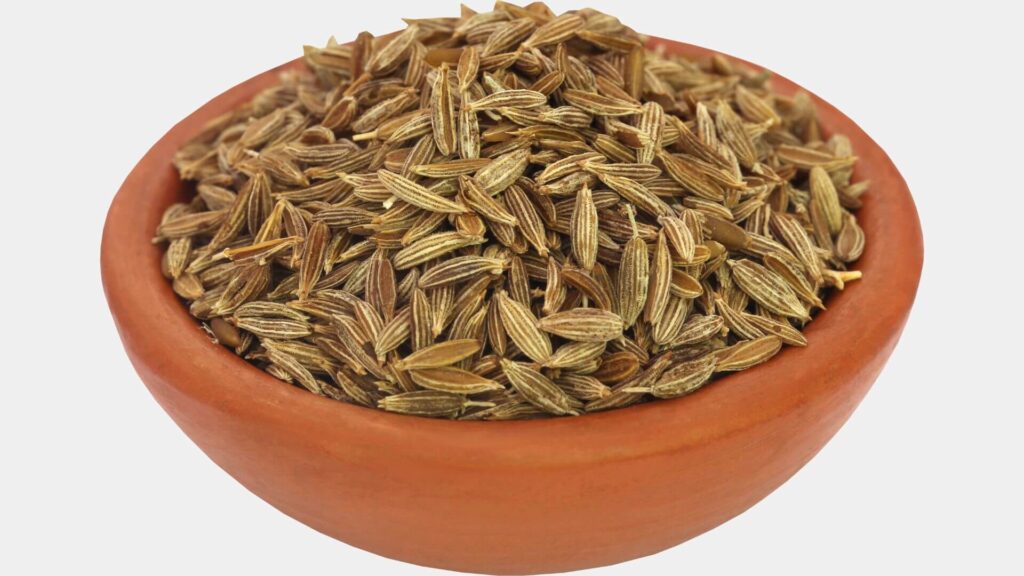
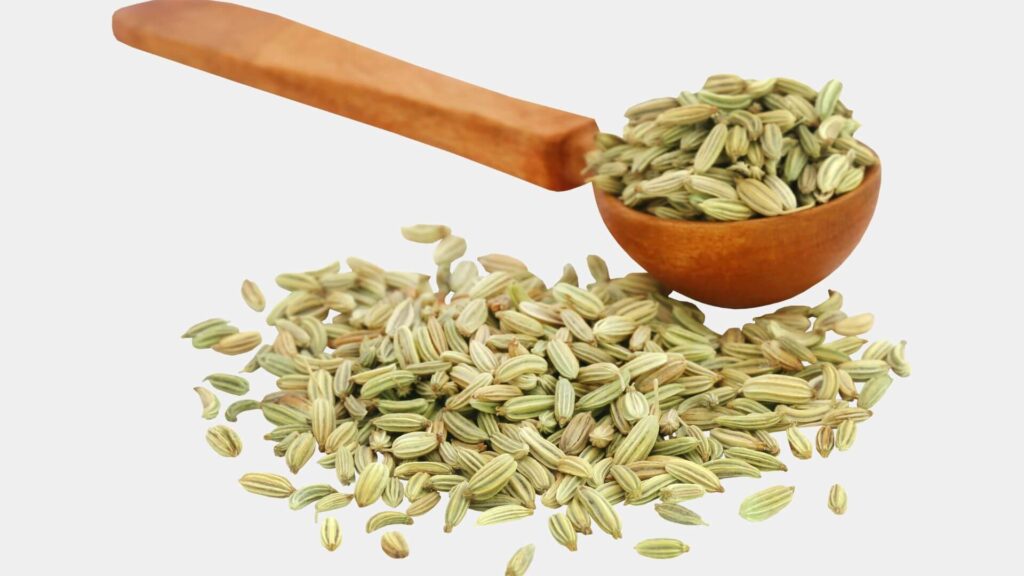
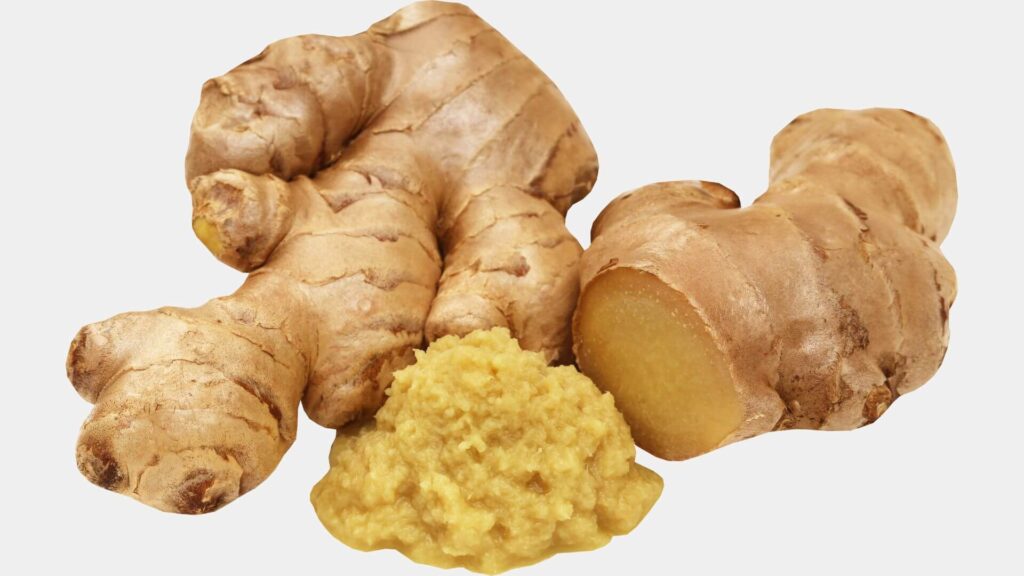
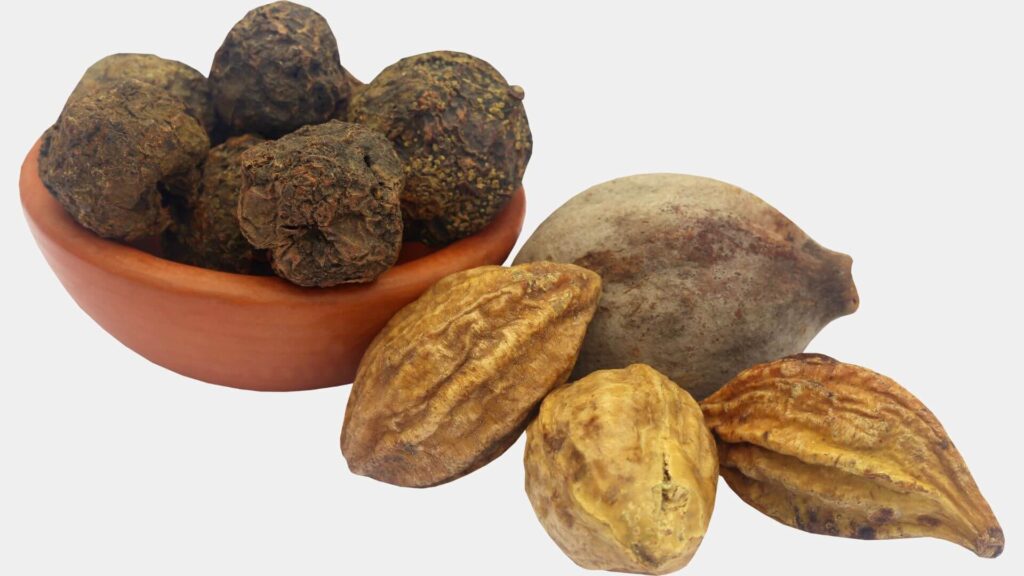
Ayurvedic massage (Abhyanga) for improved circulation and elimination
Abhyanga, or Ayurvedic self-massage, involves the application of warm oil to the entire body. This practice can help to improve circulation, reduce stress, and promote relaxation, all of which can support healthy digestion and elimination. To perform Abhyanga:
- Warm a small amount of organic, cold-pressed sesame or coconut oil.
- Apply the oil to the entire body, using long, gentle strokes on the limbs and circular motions on the joints and abdomen.
- Massage the abdomen in a clockwise direction, following the natural path of the colon.
- Allow the oil to absorb into the skin for 10-20 minutes before showering or bathing.
Regular practice of Abhyanga can help to stimulate the body’s natural elimination processes and promote overall colon health.
Pranayama (breathing exercises) for relaxation and stress relief
Pranayama, or yogic breathing exercises, can be a powerful tool for reducing stress, promoting relaxation, and supporting optimal digestion. When the body is in a relaxed state, the digestive system functions more efficiently, and elimination processes are more regular. Some simple Pranayama techniques for colon health include:
Diaphragmatic Breathing: Place one hand on the chest and the other on the abdomen. Breathe deeply through the nose, allowing the abdomen to expand with each inhalation and contract with each exhalation.

Alternate Nostril Breathing (Nadi Shodhana): Use the right thumb to close the right nostril and inhale deeply through the left nostril. Close the left nostril with the right ring finger, release the right nostril, and exhale. Inhale through the right nostril, then close it and exhale through the left. Repeat for several cycles.

Bhramari Pranayama (Humming Bee Breath): Close the eyes and take a deep inhalation through the nose. On the exhalation, make a humming sound, like that of a bee, while keeping the lips gently closed and the teeth slightly apart. Repeat for several breaths.
By incorporating these Ayurvedic practices into a daily routine, individuals can support colon health, promote optimal digestion, and enhance overall well-being.
When to Seek Professional Help
While Ayurvedic practices like Basti therapy can be highly effective in promoting colon health and addressing digestive issues, there are certain situations in which it is important to seek professional medical help.
Persistent or severe digestive issues
If you experience persistent or severe digestive symptoms, such as:
- Chronic constipation or diarrhea
- Abdominal pain or cramping that does not resolve with home remedies
- Unexplained changes in bowel habits
- Persistent bloating or gas
It is important to consult with a healthcare provider to rule out any underlying medical conditions and receive appropriate treatment.
Blood in stool or abdominal pain
The presence of blood in the stool or severe abdominal pain can be a sign of a more serious health issue, such as:
- Inflammatory Bowel Disease (IBD)
- Colorectal cancer
- Intestinal infections
- Diverticulitis
If you experience these symptoms, seek medical attention promptly for proper diagnosis and treatment.
Chronic constipation or diarrhea
While occasional constipation or diarrhea is common and can often be managed with lifestyle changes and home remedies, chronic or persistent cases may require professional intervention. Chronic constipation or diarrhea can lead to complications such as:
- Hemorrhoids
- Anal fissures
- Fecal impaction
- Dehydration
- Electrolyte imbalances
If you experience chronic constipation or diarrhea, consult with a healthcare provider to identify the underlying cause and develop an appropriate treatment plan.
Conclusion
Ayurvedic Basti therapy is a powerful and effective practice for promoting colon health, eliminating toxins, and supporting overall well-being. By cleansing the colon and restoring balance to the digestive system, Basti can help to relieve a range of digestive issues, from constipation and bloating to more serious conditions like Inflammatory Bowel Disease.
However, it is important to remember that colon health is not just about occasional cleansing or detoxification. True health and vitality come from a holistic approach that encompasses diet, lifestyle, stress management, and regular self-care practices.
By incorporating Ayurvedic principles and practices into daily life, such as eating a balanced, sattvic diet, engaging in regular exercise and yoga, practicing stress-reduction techniques, and using supportive herbs and spices, individuals can create a foundation for optimal colon health and overall well-being.
Whether you are seeking to address specific digestive issues or simply wish to support your body’s natural cleansing processes, Ayurvedic Basti therapy and related practices offer a gentle, effective, and time-honored approach to achieving optimal health and vitality.
FAQ
Basti treatment is generally not painful when performed by a skilled Ayurvedic practitioner. You may experience mild discomfort or a feeling of fullness during the procedure, but this is usually well-tolerated.
While Basti therapy can support weight loss by promoting regular bowel movements and improving digestion, it is not primarily a weight loss treatment. The amount of weight loss varies from person to person and depends on factors such as diet, lifestyle, and overall health.
After a Basti treatment, most people report feeling relaxed, refreshed, and lighter. You may notice an improvement in your digestion, energy levels, and overall sense of well-being. Some individuals may experience mild side effects such as abdominal discomfort or increased bowel movements, but these typically subside quickly.
Yes, you can eat after a Basti treatment, but it is essential to follow the dietary guidelines provided by your Ayurvedic practitioner. Typically, it is recommended to wait at least 30 minutes to an hour after the treatment before consuming a light, easily digestible meal.
